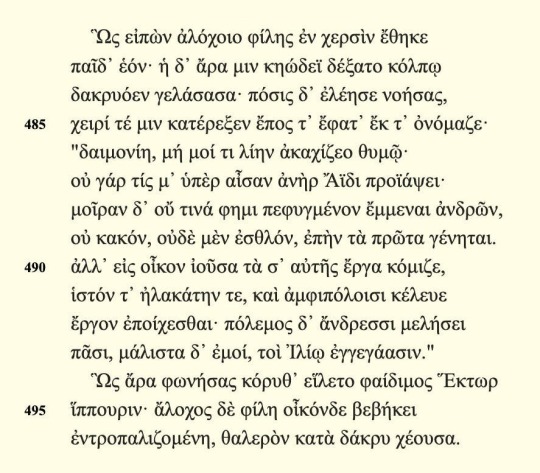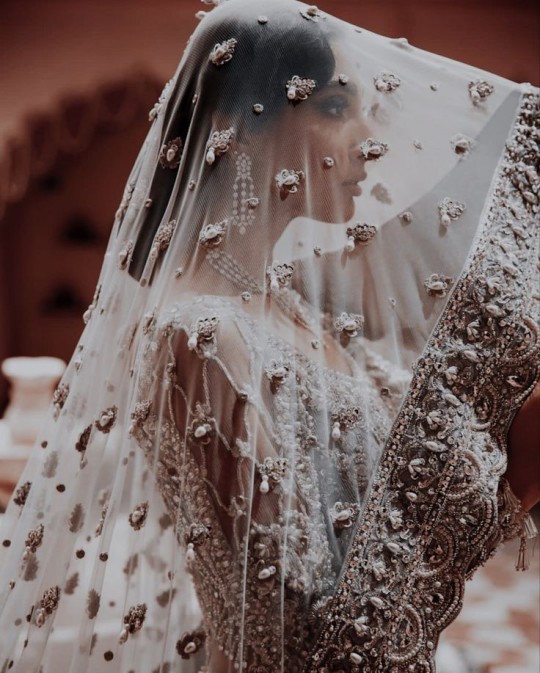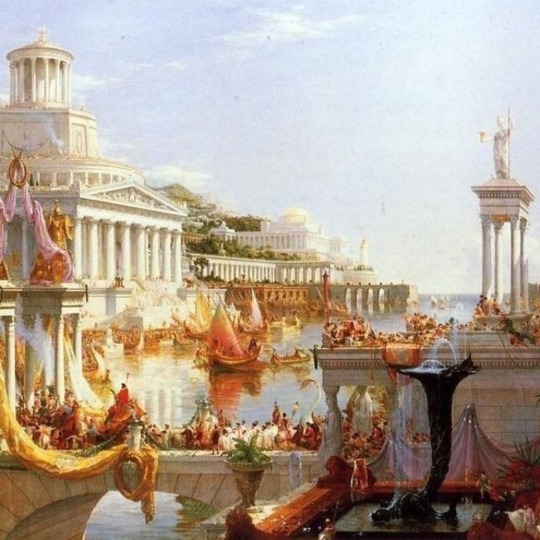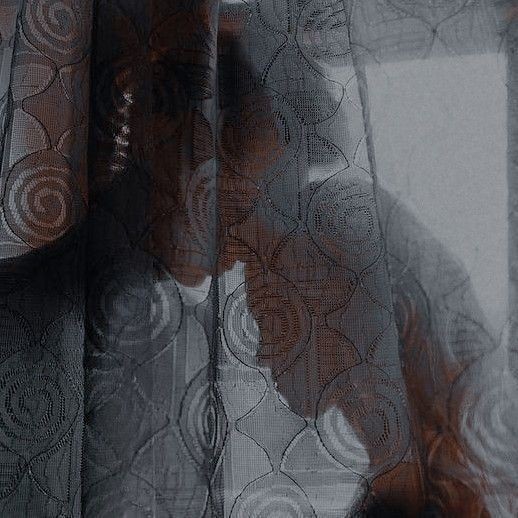#as hector of the shining helm
Text


















the saint of duty + an iliad's hector of troy
An Iliad, Lisa Peterson & Denis O'Hare, p. 480 / Harrow the Ninth, p. 124, 133, 191, 193, 194, 204, 228, 267 292, 469 / Nona the Ninth, p. 30, 399, 402
#gideon the first#harrow the ninth#nona the ninth#mine#i'm sure as soon as i post this i'm gonna think of another quote i'd like to use but this is long enough#anyways it's about. hector's role in the narrative of the iliad & an iliad as this man who honors his place in the story and his position#as hector of the shining helm#and about the role gideon plays in the narrative of htn particularly where he is playing a particular role to his duty and what he seems to#need to do to cling to whatever dregs of sanity he believes he has left#ironclad to his role in the narrative but so few people even the ones around him barely see him as more than#god's attack dog. bound by something no one else seems willing to name or identify#this is gonna be a if you get it you get it if you don't you don't post i think#g1deonheads rise!!!#hector and gideon as people who the narrative seems almost to Happen to#does that make any sense. HELLO
96 notes
·
View notes
Text
The fact that Hector's epithet is “with the shining helm” and his helmet is such a huge part of his identity because he is first and foremost a warrior and then when he goes to see his wife and child, his son is so scared of the helmet that he starts crying and Hector takes off the helmet and lays it in the dirt so he can hold his kid? That’s evil. Homer was evil for that
#the iliad#Homer’s Iliad#I will never ever understand why Tumblr girlies are so obsessed with Achilles and/or Patroclus when Hector is RIGHT THERE#I mean I know why that is (the shadow of Madeline Miller follows me daily) but I wish it was not so
8K notes
·
View notes
Text
Hmm just finished reading Emily Wilson's Iliad. Gideon Nav you are so Hector-Paris to me. The divinely unsullied corpse with the neck wound, who ignored their lover's pleas not to go to their death and to find another way, whose death turns the entire tide of the plot... That's Hector. The two-named (Paris-Alexander, Gideon-Kiriona) cuckoo in the nest who was never meant to live and blasés their way through life, who picked love when faced with a judgement, then reaps the consequences, who lives with divine intervention they never technically wanted... That's Paris. The most revered son of Priam and the most sneered at son of Priam, united into one character. Harrow thinks Gideon is Hector, the shining helm, the man-slayer– the greatest warrior the Ninth has ever produced. Crux thinks Gideon is Paris, the omen, the burning torch, merely 'Helen's husband'– the conflict-starting embarassment who shouldn't have survived as long as they have. And despite all of Gideon's protests, she still dies in battle in the name of the Ninth, just like how Hector and Paris die in battle in the name of Troy. 'For the Ninth!'
#oh gideon. you are everything to me girl#the locked tomb#gideon nav#gideon the ninth#the locked tomb spoilers#gideon the ninth spoilers#the iliad#paris#hector#my post
316 notes
·
View notes
Text
you ever think about the fact that those were the burial rites of hector, breaker of horses? not hector of the shining helm? In that moment, they didn't bury the terror of the achaeans, they buried a son, a brother, a husband, a father. Not only will those hands never spill blood and protect the walls again, but those hands will also never cradle his baby son or hold his wife again. That face will never send fear down the enemy's spine, nor will it ever smile or gleam with pride again. The helm will slowly be eaten away by rust and grow dull, and so will the horses without hector to rein their spirits or andromache to gently feed them wine and wheat. They didn't bury him for who he was to the achaeans, they buried him for who he was to the trojans. The laments over his body started with his ferocity in battle and ended with his gentleness. Yes, they grieved the future (death) he left them with when he fell, but maybe they also grieved the past (life) he took with him to the grave.
#fucking;; feral#niko rambles#hector of troy#yes without him they will die. but they can't live without him either can they.#instead of fearing death they can cherish life. at least for a moment. hmm#i can't explain it. but shit.
89 notes
·
View notes
Text
Emily Wilson is a professor of classical studies at the University of Pennsylvania. Her translation of the “Odyssey” was published in 2017, and her translation of the “Iliad” will be published in September.
June 28, 2023
In one of the most moving and memorable scenes from the “Iliad,” the great Trojan warrior Hector says farewell to his wife, Andromache, who has urged him not to risk his life by fighting on the plain. He gives their baby back to her, tells her to go home, and reiterates his decision to advance on the enemy.
Around 100 complete English translations of the “Iliad” have been published over the past 400 years. Their variety shows no clear trajectory of cultural change: Some of the more recent Homers are more archaic and less idiomatic than many earlier ones, but some are not. A wide variety of forms are used to “translate” the dactylic hexameter of the original, including prose and free verse as well as several poetic meters.
The translations reflect a wide range of possible interpretations of this short passage. Is Hector harshly scolding Andromache for offering advice about the war, despite her gender? Or is he treating her with gentle pity? Is she worried only about her husband’s death, or is she also concerned about her own imminent enslavement and their baby’s slaughter? Are her concerns valid? Does the warrior risk his life despite his love for his family, or because of it? Why must men fight? Why must women weave? How strange, or how familiar, is the society of the poem?
Each of these translations — along with dozens more — suggests a different understanding of the central themes of courage, marriage, fate and death.
The Original ‘Iliad’ 6. 482-497
The original poem is composed in beautifully musical, metrically regular dactylic hexameter, and designed to be performed out loud: It is poetry for the mouth and ear, not the page.
The scene evokes the complex emotions of three separate characters — the frightened baby, the woman, the man — and it also includes a silent fourth, the enslaved nurse.
The text provides a vivid account not only of Hector’s words, but also of his actions. At the end of the passage, he picks up again the shining helmet that he took off because its plume frightened his little son, and in so doing, he becomes again “bright-helmed Hector,” as the traditional formula of heroic poetry describes him: He again assumes his role and costume as a man who lives and will die by war.
Before this passage, Andromache has pleaded with Hector to adopt a safer strategy, rather than go to almost certain death by meeting the enemy on the open plain. As she reminds him, Hector is risking much more than his own life. His death will entail his wife’s rape and enslavement, their baby’s violent death and the sack of their city.
Hector’s response suggests a fascinatingly contradictory attitude toward his own actions. His firm tone could suggest brash confidence and/or a man steeling himself for a heartbreaking choice to prioritize his own honor over the lives and freedom of everyone he loves — a choice that becomes possible only when presented as no choice at all.

George Chapman (1611)
The first complete translation into English, by the playwright and erstwhile soldier Chapman, creates a staunch, fatalistic version of Hector, reflecting the poet’s interest in Stoicism. Chapman uses a metrical form that was already old-fashioned in his day, “fourteeners,” or rhyming heptameters; the original does not rhyme.
The translation expands on the original in ways that may be startling by modern norms — for instance, by rendering the single word for “tearfully,” dakruon, as “fresh streams of love’s salt fire.”
…This said, th’ heroic sire
Gave him his mother; whose fair eyes fresh streams of love’s salt fire
Billow’d on her soft cheeks, to hear the last of Hector’s speech
,In which his vows compris’d the sum of all he did beseech
In her wish’d comfort. So she took into her od’rous breast
Her husband’s gift; who, mov’d to see her heart so much oppress’d,
He dried her tears, and thus desir’d: “Afflict me not, dear wife,
With these vain griefs. He doth not live, that can disjoin my life
And this firm bosom, but my fate; and fate, whose wings can fly?
Noble, ignoble, fate controls. Once born, the best must die,
Go home, and set thy housewif’ry on these extremes of thought;
And drive war from them with thy maids; keep them from doing nought.
These will be nothing; leave the cares of war to men, and me
In whom, of all the Ilion race, they take their high’st degree.”
On went his helm; his princess home, half cold with kindly fears;
When ev’ry fear turn’d back her looks, and ev’ry look shed tears.
Alexander Pope (1715)
Pope’s translation, into elegant rhyming pentameter couplets, was a best seller in the 18th century and remains a classic. Pope adds a great many details entirely of his own invention, inserting anachronistic notions of marriage (“my soul’s far better part”), and explaining emotional responses that are unstated or ambiguous in the original: For example, Homer does not explain why Andromache is crying, but Pope clarifies that it is from “fear.” Pope invents some wonderful aphorisms that have no basis in the original but add zing to the couplet, such as “the first in danger as the first in fame.”
He spoke, and fondly gazing on her charms,
Restored the pleasing burden to her arms;
Soft on her fragrant breast the babe she laid,
Hush’d to repose, and with a smile survey’d.
The troubled pleasure soon chastised by fear,
She mingled with a smile a tender tear.
The soften’d chief with kind compassion view’d,
And dried the falling drops, and thus pursued:
”Andromache! my soul’s far better part,
Why with untimely sorrows heaves thy heart?
No hostile hand can antedate my doom,
Till fate condemns me to the silent tomb.
Fix’d is the term to all the race of earth;
And such the hard condition of our birth:
No force can then resist, no flight can save,
All sink alike, the fearful and the brave.
No more — but hasten to thy tasks at home,
There guide the spindle, and direct the loom:
Me glory summons to the martial scene,
The field of combat is the sphere for men.
Where heroes war, the foremost place I claim,
The first in danger as the first in fame.”
Thus having said, the glorious chief resumes
His towery helmet, black with shading plumes.
His princess parts with a prophetic sigh,
Unwilling parts, and oft reverts her eye
That stream’d at every look; then, moving slow,
Sought her own palace, and indulged her woe.
Samuel Butler (1898)
The prose version by the 19th-century novelist and satirist Butler — a lifelong bachelor — suggests a very different set of assumptions about women, metaphysics, emotions (“his heart yearned towards her” for eleēse, “pitied”) and even time management (“daily duties” for erga, “tasks”). Butler treats Homer’s repeated epithets as skippable, so that phaidimos Hector (“glorious Hector”) becomes simply “he.”
With this he laid the child again in the arms of his wife, who took him to her own soft bosom, smiling through her tears. As her husband watched her his heart yearned towards her and he caressed her fondly, saying, “My own wife, do not take these things too bitterly to heart. No one can hurry me down to Hades before my time, but if a man’s hour is come, be he brave or be he coward, there is no escape for him when he has once been born. Go, then, within the house, and busy yourself with your daily duties, your loom, your distaff, and the ordering of your servants; for war is man’s matter, and mine above all others of them that have been born in Ilion.” He took his plumed helmet from the ground, and his wife went back again to her house, weeping bitterly and often looking back towards him.
Robert Fagles (1990)
Fagles’s best-selling translation, in unmetrical free verse, uses many familiar American idioms and clichés (such as “smiling through her tears,” or “filled with pity,” a metaphor absent from the original). He softens the brusqueness of Hector’s final speech to his wife by rendering daimonie as the gentle “dear one,” and adding “trying to reassure her” and “please,” neither of which appears in the Greek.
Fagles makes Hector’s most iconic phrase, that men must be warriors, sound much chattier and wordier than the original, spreading it over two lines: “as for the fighting / men…”
… So Hector prayed
and placed his son in the arms of his loving wife.
Andromache pressed the child to her scented breast,
smiling through her tears. Her husband noticed,
and filled with pity now, Hector stroked her gently,
trying to reassure her, repeating her name: “Andromache,
dear one, why so desperate? Why so much grief for me?
No man will hurl me down to Death, against my fate.
And fate? No man alive has ever escaped it,
neither brave man nor coward, I tell you —
it’s born with us the day that we are born.
So please go home and tend to your own tasks,
the distaff and the loom, and keep the women
working hard as well. As for the fighting,
men will see to that, all who were born in Troy
but I most of all.”
Hector aflash in arms
took up his horsehair-crested helmet once again.
And his loving wife went home, turning, glancing
back again and again and weeping live warm tears.
Emily Wilson (2023)
In my own translation of the “Iliad,” I echo the metrical regularity of the original by using unrhyming iambic pentameter. I thought long and hard about the multiple narrative perspectives suggested by the original poem, and its resonant ambiguities; in this passage, for example, I use both “beloved” and “loving” for phile — a word that could suggest either, or both — because the feelings of both the wife and the husband are at stake.
The rhetorically punchy qualities of Hector’s speech seemed essential, as well as Hector’s insistent focus on his own defining identity as a warrior. Hector is a deeply loving father and husband who makes the choice to leave his family to almost-certain enslavement and death.
As I read the Greek, we feel heartbroken for all three members of the family (or for all four, counting the silent nurse) — and all the more so because there is no hint of sentimentality in the language, no softness in Hector’s final words. The emotions are sketched with extraordinary concision: The only explicit feeling is Hector’s pity for Andromache’s tears (eleēse), but a world of other emotions is evoked through gesture.
…With these words,
he gave his son to his beloved wife.
She let him snuggle in her perfumed dress,
and tearfully she smiled. Her husband noticed
and pitied her. He took her by the hand
and said to her,
“Strange woman! Come on now,
you must not be too sad on my account.
No man can send me to the house of Hades
before my time. No man can get away
from destiny, first set for us at birth,
however cowardly or brave he is.
Go home and do the things you have to do.
Work on your loom and spindle and instruct
the slaves to do their household work as well.
War is a task for men — for every man
born here in Troy, but most especially, me.”
When he had finished speaking, glorious Hector
picked up his helmet with its horsehair plume.
His loving wife set off for home, but kept
twisting and turning back to look at him.
More and more tears kept flooding down her face.
#emily wilson#quotes#the iliad#hektor#andromakhe#hektor x andromakhe#i know not everyone has nyt subscription but this is fascinating re:translation so i have provided the whole text under the read more :)
269 notes
·
View notes
Text
i'm supposed to be writing about tragedy but that moment in iliad 22 when andromache sees hector dead and tears off the veil "which golden aphrodite gave her on that day when shining-helmed hector led her from the house of eetion after bringing countless bride-gifts"? that veil? was sappho fr 44.
#let texts wear other texts.#p oxy 1232 is veil-shaped............#talking about 'chronologically later but narratively earlier' i love textual temporalities#mine
30 notes
·
View notes
Note
Is your name Sarah AND Charlie!? Are you two admins of this account? Are you personas of the same person?
people can have more than one name sometimes. charlie is my epithet. like hector of the shining helm but sarah charlie. u know
106 notes
·
View notes
Text









"The shining gear that ordered her [Andromache's] glittering headdress, the diadem and the cap, and the holding-band woven together, and the circlet, which Aphrodite the golden had once given Andromache on that day when sunlit Hector, flashing-helmed, led her home to Troy from the house of Eetion her father, with countless wedding gifts to win her heart." – Homer, The Iliad
34 notes
·
View notes
Text
every day i think about hector "of the shining helm" taking off his helmet, the symbol of his prowess & heroism, & leaving it on the ground to kiss & play w his son. making one last effort to leave war behind & connect with his loved ones. literally every single day
174 notes
·
View notes
Text
if achilles was a mlp pony his name would be swift foot. hector is shining helm
12 notes
·
View notes
Text
Every time I read the words “Hector of the Shining Helm” I’m picturing a guy running around in a little tinfoil hat.
#tagamemnon#greek myths#greek mythology#hector of troy#no but like what if he believed Cassandra but where he ran with it was doomsday prepping#and he had all these cans of beans hidden under the cirt
12 notes
·
View notes
Text
Ok so you guys know that bit in The Iliad where Hector goes to say goodbye to his wife and child, but Astyanax cries because the helmet scares him, so Hector ("of the Shining Helm" is literally his epithet) takes off his helmet so he can hold and comfort his son?
That but with Rome and young Romano and/or Veneziano. Thank you for your time.
#hetalia#my thoughts#hetalia headcanons#hws rome#hws romano#hws italy#i for one could especially see a young feli terrified until he takes off the helmet#but i feel like it would hit with romano bc he tries to act tough (even as a kid)#and to see your firstborn who insists he can handle anything COWER at the sight of you#until he actually sees your face#i feel like that would hit different
18 notes
·
View notes
Note
⛵ ( let's get shipwrecked )
Thunder boomed in the distance, lightning strikes on the surface of the sea. The black pearl pushed through the monstrous waves forming in the distance. At the helm was Captain Barbossa steering the wheel to guide the ship through the sea. "Batten down the hatches!" Barbossa shouted to the crew below. Everyone was hands on deck, every sailor manning their stations.
Unfortunately, even though the ship stayed afloat, waves poured onto the deck whilst lightning clashed against the sides of the ship. Hector turned and steered the wheel, trying to push through. Yet a wave the size of a leviathan crashed onto the ship. Hector blacked out when the wave crashed over the top of the ship.
Darkness, nothing but darkness, shrouded his vision until...light. A brightness shined into his dead lights, and his vision started to come back around. His eyes started to flicker open to see--he was on an island. Waves rolled and turned into sea foam that just nearly touched his shoulder. Barbossa's round hat was beside his hand covered in sand. He pushed himself up and grabbed his battered cavalier hat.
Though as he turned dusting off his cavalier hat covered in sand. He saw. Mrs Turner?!
He questioned, "Mrs Turner?".

#pirates of the caribbean rp#potc rp#shipwrecked#barbossa rp#hector barbossa#potc#captainofthepearl#pirates of the carribean rp
3 notes
·
View notes
Text
faramir i do not love the bright sword for its sharpness, nor the arrow for its swiftness, nor the warrior for his glory, i love only that which they defend and hector of the shining helm, breaker of horses, taking his helmet off to hug his son
4 notes
·
View notes
Text
Dolo Flicks: Creed III Review - Jonathan Majors Shines As The True Underdog of Creed III
(adsbygoogle = window.adsbygoogle || []).push({});
By Hector Franco
Follow @MrHector_Franco !function(d,s,id){var js,fjs=d.getElementsByTagName(s)[0],p=/^http:/.test(d.location)?'http':'https';if(!d.getElementById(id))(document, 'script', 'twitter-wjs');
Follow @Frontproofmedia!function(d,s,id){var js,fjs=d.getElementsByTagName(s)[0],p=/^http:/.test(d.location)?'http':'https';if(!d.getElementById(id))(document, 'script', 'twitter-wjs');
Published: March 08, 2023
"I was, bro. But I never got the chance to prove that. Look, all I'm saying, bro, Apollo Creed took a chance on some underdog, why can't you?" -- Damian Anderson (Jonathan Majors)
It seems like ages ago when the conception of Creed first came to fruition in 2015. At first glimpse, it would be yet another attempt by Hollywood to capitalize on an old popular property from the 1980s to line their pockets.
Fortunately, rather than succumbing to the typical pitfalls that sequels and reboots fall under, 2015's Creed surpassed all expectations under the helm of Ryan Coogler. Focusing on a story centering on Apollo Creed's son Adonis and bringing back Sylvester Stallone to play the mentor brought about arguably the best film in the franchise since the original Rocky.
Now, we are in the third chapter of the story of Adonis Creed with Michael B. Jordan for the first time, starring and directing the film. Creed 3 also marks the first time any of the Rocky movies don't involve the character of Rocky Balboa or Sylvester Stallone. Due to these circumstances, the results vary in success.
The previous Creed entries all follow a theme of overcoming the past. In Creed, Adonis faces the daunting task of living up to the Apollo Creed name to prove he wasn't, as he puts it, a 'mistake.' In Creed II, Adonis takes on the death incarnate of his father's passing, fighting the son of Ivan Drago not just once but twice. The past once again confronts Adonis in Creed 3. However, this time it's something personal to him that doesn't involve Rocky or his deceased father.
Creed 3 begins years after the previous movie's events, with Adonis having accomplished everything he has set out to in his career. He has gained revenge on Ricky Conlan (Tony Bellew) as a champion. Now a promoter and the owner of his own gym, he promotes the current heavyweight champion and lives with his wife and daughter in Los Angeles.
Playing the film's new antagonist is a figure from Adonis' past when he lived in a group home. Damian "Dame" Anderson, played by Jonathan Majors, is the highlight of Creed 3, putting forth a stellar performance. The inclusion of "Dame" allows for a story that focuses directly on Adonis' life. But, it also takes away any underdog components for the Creed character that have been integral in all of the Rocky movies.
The rich family man with all the money in the world can't be the underdog when his opponent is someone that was wronged and is fighting in just his first two professional bouts after a 20-year prison sentence. Sure, some of Dame's actions, such as orchestrating an attack on Viktor Drago and fighting dirty, are reprehensible, but he isn't exactly a villain either. More time should have been given to Majors to further establish his character as a threat to Creed. As it stands, he was the true underdog of Creed 3.
Stallone, who wrote the first Rocky film and has directed the majority of the franchises' sequels, did not want to participate in Creed 3 due to the direction of the film's story and his longstanding feud with the producer Irwin Winkler.
"I wish them well [Jordan and Winkler], but I'm much more of a sentimentalist," Stallone told The Hollywood Reporter. "I like my heroes getting beat up, but I just don't want them going into that dark space. I just feel people have enough darkness."
One drawback that has persisted in all of the Creed films is that Adonis Creed isn't the most likable person. He does have redeeming qualities, but he has more in common with Burt Young's Paulie than Rocky Balboa. Throughout the series, Adonis constantly loses his composure and blows up on several characters, from Rocky to his mother, Mary Anne Creed (Phylicia Rashad), and his wife Bianca Taylor (Tessa Thompson). Adonis's interactions outside of the ring don't endear him to the audience and make him a flawed antagonist you can root against. It's in these instances that the Rocky character is genuinely missed.
The Rocky films have never been what one would call realistic. They are similar to the movies in the Marvel Cinematic Universe in which they are in a pseudo-fantasy reality based on the real world. However, with Creed 3 any attempts at being realistic are paired with unrealistic circumstances.
Consistently, the Creed film series has done an outstanding job at using real boxers to play roles. Fighters such as Tony Bellew, Andre Ward, and Gabriel Rosado played substantial parts, and the third installment of Creed follows suit with Jose Benavidez playing heavyweight champion Felix Chavez. However, like all art forms, the little things matter in film.
Benavidez is serviceable. However, if you follow boxing having a former 147-pound boxer pose as a heavyweight set to take on the 6'4 245-pound Florian Munteanu (Viktor Drago) is a bit ludicrous. Even more, is "Dame" receiving a title shot for the undisputed heavyweight title in his first professional boxing match. Over the last decade, there has recently been an influx of fighters that have received world title opportunities early in their careers. But many of them have had long amateur careers. For Jonathan Majors' 'Diamond Dame' to get a world title shot in his first pro-bout with only a golden gloves championship to his name is just some of the contrived writing found in the film.
The movie makes a point of using actual boxing platforms such as DAZN and Showtime. But it doesn't take time to tell a story with situations that could be feasible in the actual boxing world.
The film has some pacing issues going from the second to the third act, with there being a chunk of the movie missing. Some storylines are abandoned and swept under the rug such as the marital issues between Adonis and Bianca and their daughter Amara (Mila Davis-Kent) fighting in school. And the death of Mary Anne Creed feels forced and added for dramatic effect. By the end of the movie, Adonis is the same character without having learned any lessons or changed.
The story and character problems prevalent in Creed 3 don't completely derail the film. In Michael B. Jordan's first time in the director's chair, he shows that he has been studying the directors he has worked with and added his own style. The fight scenes are done in a different method, with Jordan drawing influences from anime. This method may only be for some. The movie certainly takes advantage of the IMAX format with the movie using Sony CineAlta Venice cameras and a Panavision anamorphic format. Creed 3 is the first sports film in history to be shot in this manner.
Creed 3 is a solid addition to the Rocky boxing franchise. It doesn't reach the heights of some of the best films in the series, but it won't be remembered as one of the best either.
3/5***
(Featured Image: Warner Bros./Metro-Goldwyn-Mayer, Chartoff-Winkler Productions)
0 notes
Text
In my Mythology class we have this first assignment for The Iliad and we can basically do anything creative with it and I am in between an analysis or recreating a section from a character's pov. Now, because I freaking LOVE Hector I am determined to center my paper on him. And while I surely like other characters, I just really feel like Hector does not receive the appreciation that he deserves.
(Although putting all that aside I really suck since I had so much time to do this. But of course, I had to wait until two effing days before the due date.)
12 notes
·
View notes